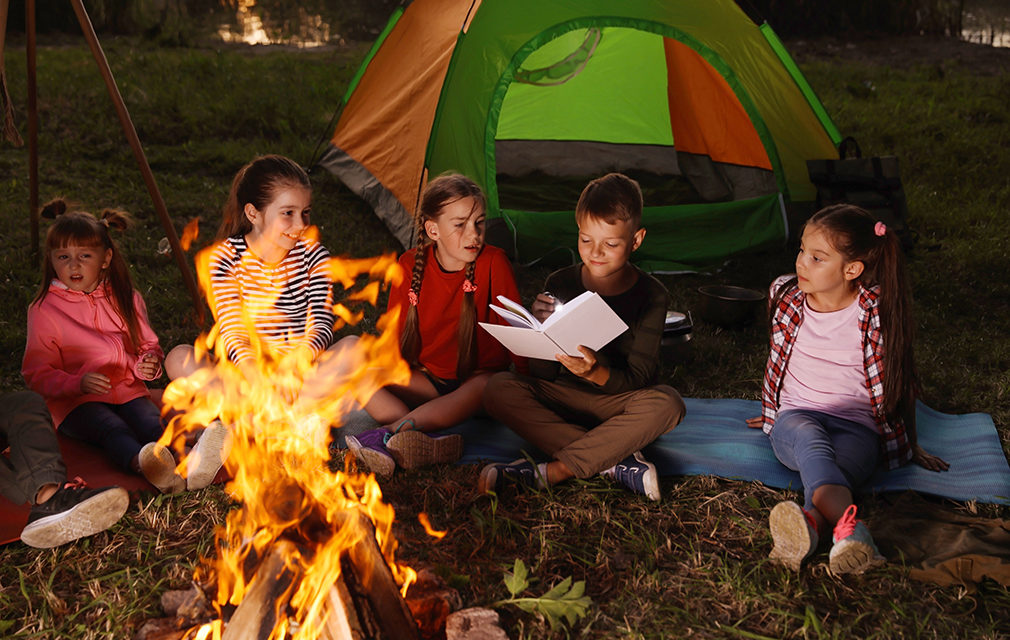
Overnight camps offer children a chance to immerse themselves in a new environment away from home for an extended period, typically ranging from a few days to several weeks. These camps provide a wide range of activities, from outdoor adventures like hiking and canoeing to arts and crafts, sports, and team-building exercises. Sending your child to an overnight camp can be a significant milestone in their development. The experience can foster independence, social skills, resilience, and self-confidence in children.
However, as a parent, determining whether your child is ready for such an adventure can be a daunting task. There are various factors to consider, from their emotional maturity to their ability to handle new environments. While every child is unique, there are several indicators that can help you gauge whether your child is ready for overnight camp.
Emotional Maturity
Emotional maturity plays a crucial role in determining a child’s readiness for overnight camp. Children should be able to cope with feelings of homesickness, adapt to new surroundings, and manage conflicts independently. Consider your child’s past experiences with sleepovers or extended periods away from home. Have they demonstrated resilience and coping skills in these situations?
Comfort with Separation
One of the biggest challenges of overnight camp is being away from home and family for an extended period. Assess your child’s comfort level with separation. Have they spent nights away from home before, such as at a friend’s house or with relatives? Do they express excitement about the prospect of staying overnight at camp, or do they exhibit signs of anxiety and reluctance? A child who copes well with separations and shows enthusiasm for new experiences may be more prepared for the camp environment.
Independence
Overnight camp requires a certain level of independence from children. They should be capable of taking care of their personal hygiene, following instructions from camp counselors, and making basic decisions on their own. Consider your child’s ability to handle tasks independently. Can they dress themselves, organize their belongings, and follow basic instructions without constant supervision? Independence skills are essential for thriving in a camp setting where children are expected to take responsibility for their actions and daily routines.
Resilience and Adaptability
Life at camp is full of surprises and challenges, from navigating unfamiliar surroundings to trying new activities. Assess your child’s resilience and adaptability in the face of adversity. Do they bounce back quickly from setbacks? Can they adapt to changes in routine and unfamiliar environments without becoming overwhelmed? Resilient children who embrace new experiences and view challenges as opportunities for growth are better equipped to thrive in the dynamic environment of overnight camp.
Social Skills
Camps provide opportunities for children to interact with peers from diverse backgrounds. Assess your child’s ability to communicate effectively, cooperate with others, and resolve conflicts peacefully. Observe how your child interacts in group settings, such as school or extracurricular activities. Do they demonstrate empathy, respect for others, and a willingness to collaborate? Are they able to communicate their needs and preferences effectively? While shyness is natural, a child who demonstrates openness to socializing and forming bonds with peers may flourish in the camp environment.
Interest and Enthusiasm
A child’s interest and enthusiasm for the activities offered at overnight camp can significantly impact their experience. Discuss the camp’s offerings with your child and gauge their level of excitement. Are they excited about the activities, adventures, and friendships that await them? Do they eagerly anticipate the opportunity to explore new interests and learn new skills? A child who expresses genuine enthusiasm for the camp experience is more likely to approach it with a positive attitude and make the most of their time away from home.
Physical Preparedness
Some overnight camps involve physical activities such as hiking, swimming, or outdoor sports. Assess your child’s physical fitness and ability to participate in these activities safely.
If your child has any medical conditions or special needs, discuss them with the camp staff to ensure appropriate accommodations can be made.
Final Thoughts
Finally, maintain open communication with your child throughout the decision-making process. Encourage them to express their thoughts, concerns, and expectations regarding overnight camp. Address any fears or anxieties they may have and provide reassurance and support. By involving your child in the decision-making process and respecting their feelings, you can help them feel more confident and prepared for the adventure ahead.
Deciding whether your child is ready for overnight camp requires careful consideration. It’s essential to prioritize your child’s well-being and ensure they have a positive and enriching experience. By assessing these aspects and talking with your child, you can make an informed decision that sets them up for a successful and enjoyable camp experience. If you have doubts about your child’s readiness, trust your instincts as a parent. Remember that every child is unique, and there is no one-size-fits-all approach.

Emily currently lives in Orange County, California after spending four years in Illinois and half a year teaching in Florence, Italy. She holds a B.A. in English Literature from Knox College and an M.A. in Counseling from the University of San Diego and has taught English to native speakers and ESL students for over three years. When she’s not working as a School Counselor or writing, she enjoys traveling the world, playing instruments, and blogging about Millennial experiences at Long Live the Twenties.
